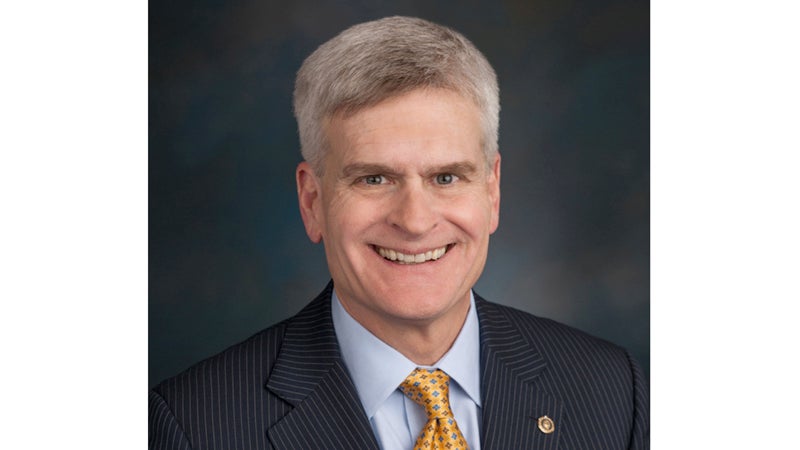Cassidy Co-Leads Senate HELP Hearing on Fighting Fentanyl Crisis
Published 10:35 am Tuesday, July 26, 2022

- Senator Bill Cassidy
|
Getting your Trinity Audio player ready...
|
WASHINGTON – U.S. Senator Bill Cassidy, M.D. (R-LA) co-led today’s Senate Health, Education, Labor and Pensions (HELP) Committee hearing on fighting fentanyl. During the hearing, Cassidy laid out a strategy to combat the surge in fentanyl and overdose deaths. He urged the passage of his legislation, the HALT Fentanyl Act, to permanently make fentanyl a Schedule I drug. Additionally, Cassidy called on the Biden administration to address the growing border crisis and focus on going after the illicit financing of fentanyl by cartels, gangs, and criminal organizations.
“Illegal fentanyl and fentanyl-related substances are flooding into our market from our southern border in unprecedented amounts, with the bulk of this ultimately originating from a handful of manufacturers in Wuhan, China,” said Dr. Cassidy. “Fentanyl accounted for 64 percent of the 100,000 overdose deaths last year— two out of every three people who died from opioids, it is from fentanyl or fentanyl-like drugs.”
“Congress failing to act to address this crisis threatens our national security and risk the safety of the individual who does not know that one pill, laced with fentanyl, can kill, which means there will be one more obituary of an 18-year-old child whose life is gone forever,” continued Dr. Cassidy.
Click here to watch and here to download Cassidy’s full opening remarks.
Click here to watch and here to download Cassidy questioning witnesses.
A transcript of Cassidy’s opening remarks as delivered can be found below:
Thank you, Madam Chair. And I thank Ranking Member Burr who allows me to lead this meeting.
As a physician, I took care of patients struggling with addiction. But it doesn’t take a physician taking care of those with addiction to know we have a fentanyl crisis.
Everyone here, and everyone watching, knows of someone who has died, or who has suffered from addiction related to opioids.
If you read of the young person who dies—the teenager or in college—most often it is related to a drug overdoes.
And you think about the tragedy of that child whose whole future is before she or he, and now it has ended—affecting not just their life, but all those generations that would come after them from that wonderful person.
It is incumbent upon us to address this issue.
Now the statistics: Fentanyl is killing over 200 Americans every day.
In 2021, we saw the largest annual increase in opioid deaths in 50 years.
In the 35 years between 1979 and 2016, 600,000 Americans died to overdoses. And 100,000 last year.
I’ll speak of my own state.
Louisiana’s drug overdose deaths hit a new record-high of 2,100 in the 12 months leading to March 2021. Overdose mortality increased statewide by over 56 percent from 2020 to 2021.
New Orleans was up 51 percent in 2020 with 365 overdose deaths, Jefferson Parish was up 69 percent, St. Tammany up 35, and St. Bernard Parish up 64 percent.
We know the cause of this. It is fentanyl.
Illegal fentanyl and fentanyl-related substances are flooding into our market from our southern border in unprecedented amounts, with the bulk of this ultimately originating from a handful of manufacturers in Wuhan, China.
Fentanyl accounted for 64 percent of the 100,000 overdose deaths last year—two out of every three people who died from opioids, it is from fentanyl or fentanyl-like drugs.
Congress has to continue to pass tools to fight this from multiple fronts.
First, we need to make the classification of fentanyl analogs as a Schedule I drug permanent. Several of my colleagues and I introduced the Halt Lethal Trafficking Fentanyl Act last year to do just that.
Second, we would need to educate Americans just how deadly fentanyl is. 2 milligrams is enough to kill someone. I was proud to join Senator Marshall and other doctors in the Congress to record a PSA informing Americans about the risk of fentanyl. Health experts and public officials need to continue such efforts.
Thirdly, the border. Last year, the DEA seized 20 million fake pills and 15,000 pounds of fentanyl—enough for 440 million lethal doses.
When I went to the border, I saw this big cage of illegal drugs. I said “how much do you think you’re getting?” They think we probably think we’re getting about a third of it.
So if we seize this much, that much more went through.
We have to recognize that a policy at the border which has been feckless and ineffective as this administration has had, no just allows people to come here who are illegal—illegal immigrants—it allows drugs to come across as well.
We’ve got to control that border. If there is a message I wish the administration to get: use your tools to control.
Congress must roll back President Biden’s dangerous policies and finally secure the border to prevent thousands of fentanyl deaths.
Fourth, we need to combat the drug cartels’ ability to finance the production and smuggling of illicit fentanyl into the United States.
Selling synthetic opioids laced with fentanyl is a major source of revenue for cartels, drugs—excuse me—gangs, criminal organizations, and for organizations such as Hezbollah. They use a financial process—including one known as Trade-Based Money Laundering—to disguise their activities and illegally move this country [sic] in and out of the country.
It is the use of financial exchanges that look like legitimate trade to serve as cover for illicit flows of money.
If we can stop the financing of the drug trade, we can stop the trade of drugs.
Finally, we need to look at loopholes in our customs system.
For example, cartels will ship Chinese-made fentanyl into our country—by mail—claiming the contents of the package is worth less than $800, which is the threshold for paying tariffs. Because it’s declared as less than $800, Customs and Border Protection does not inspect the package, and it passes through. It is a glaring loophole in our customs system.
I am looking forward to discussing these solutions and more in today’s hearing.
Congress failing to act to address this crisis threatens our national security and risk the safety of the individual who does not know that one pill, laced with fentanyl, can kill, which means there will be one more obituary of an 18-year-old child whose life is gone forever.
With that, I yield.




